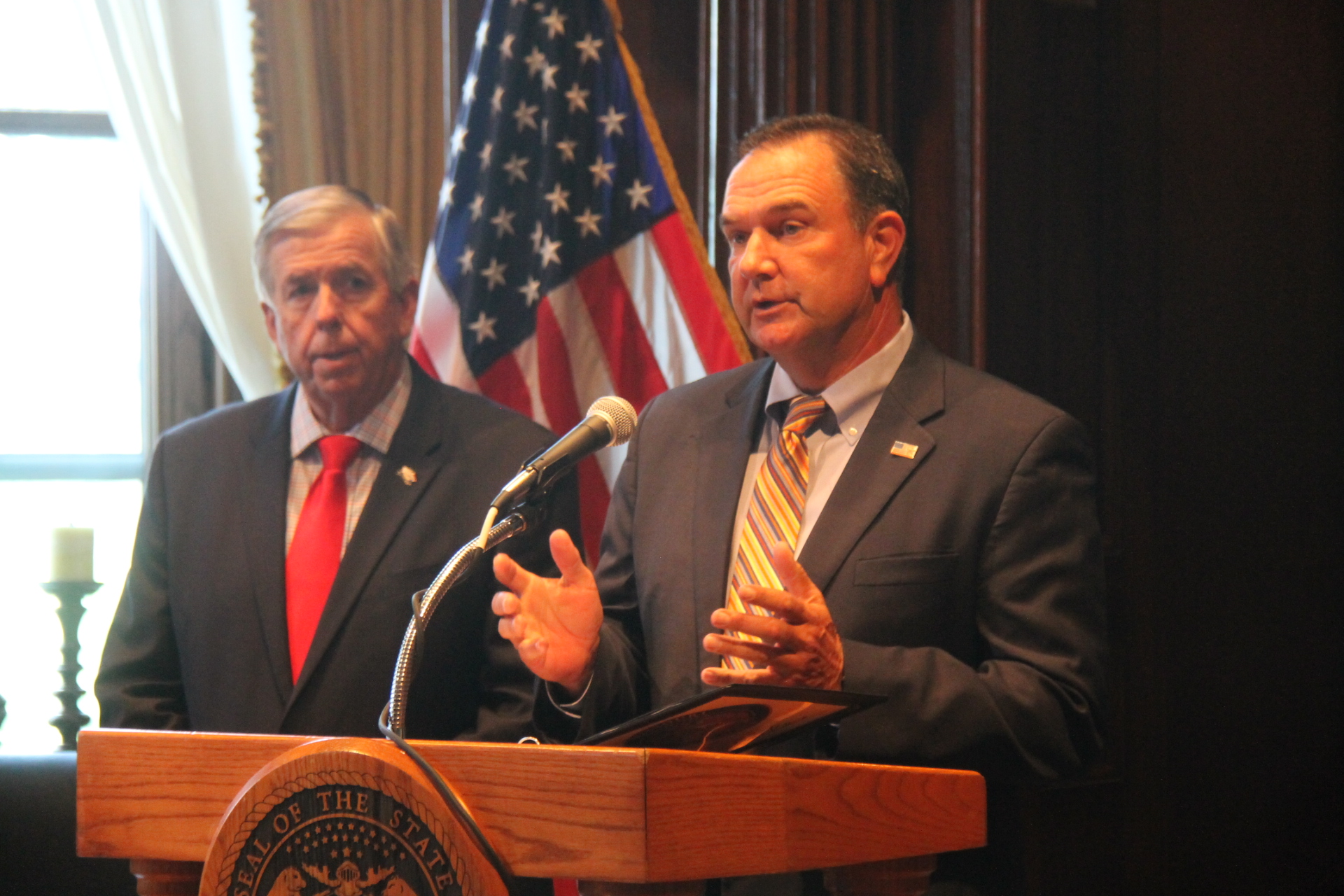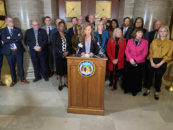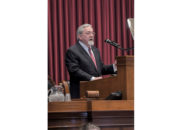JEFFERSON CITY, Mo. — Missouri’s high court has determined Gov. Mike Parson acted within his constitutional authority when appointing then-Sen. Mike Kehoe as lieutenant governor.
“Further, the constitution is clear, the Governor may fill all vacancies in public offices unless the law provides an alternative method…Therefore, article IV, § 4 controls the authority of the Governor to appoint a Lieutenant Governor, and Governor Parson was within his constitutional authority when he appointed Kehoe to the office of Lieutenant Governor,” the majority opinion, written by Chief Justice Zel Fischer, states.
On Tuesday, the Missouri Supreme Court handed down the opinion, affirming the lower court’s decision in part and reversing it in part. The high court split from the Cole County Circuit Court, determining that Darrell Cope does have legal standing to bringing the lawsuit.
At issue is Parson’s appointment of Kehoe to the position of lieutenant governor. The job was left vacant when Parson stepped up to lead the Show-Me State following the resignation of Eric Greitens as Missouri’s governor.
On June 18, 2018, Parson appointed the former-Senate majority floor leader to fill the vacant position. A move was challenged in court within hours.
The Missouri Democratic Party, along with Darrell Cope, filed a lawsuit in an attempt to send the issue to the voters claiming the governor doesn’t have the authority to appoint a person to lieutenant governor.
In July 2018, the lawsuit was dismissed by Cole County Circuit Judge Jon Beetem who ruled, not only did Cope lack standing to bring the case but the governor has the authority to appoint a lieutenant governor under the Missouri Constitution.
Cope and the Missouri Democratic Party appealed the decision and argued the case before the Supreme Court in November 2018. The high court’s rule was handed down on April 16, 2019.
The core of the argument against the appointment, which was the argument in dissenting opinion, was the Missouri statute explicitly states the governor does not have the power.
State law states, “Whenever any vacancy, caused in any manner or by any means whatsoever, occurs or exists in any state or county office originally filled by election of the people, other than in the office[] of lieutenant governor…the vacancy shall be filled by appointment by the governor…”
While the majority opinion does recognized that statute, it points to the Missouri Constitution, which states, “The governor shall fill all vacancies in public offices unless otherwise provided by law, and his [or her] appointees shall serve until their successors are duly elected or appointed and qualified.”
“Cope’s argument — that this statute shows an intent for the listed offices to remain vacant should a vacancy occur — ignores that the law provides a way to fill every office expressly mentioned in the statute apart from Lieutenant Governor,” the majority opinion states.
In response to the ruling, Parson released the following statement:
“Missouri’s constitution is clear regarding the authority to make gubernatorial appointments. It’s important that Missouri have all of the statewide offices filled, which work to provide stability and to ensure that all Missourians are being served appropriately. The Lieutenant Governor is an important office for this State, and I applaud the Missouri Supreme Court’s decision today which confirms the position, as well as the position of previous Governors from both parties, that the Governor has the authority to appoint a Lieutenant Governor in the event of a vacancy.”
Lauren Gepford on behalf of the Missouri Democratic Party told the Missouri Times:
“We respect the Court’s decision, which clears up a grey area within the law. This question needed to be addressed in the fallout from the explosive and brief tenure of Governor Eric Greitens. Governor Parson has won the power to appoint the state government of his choosing, which he has done by appointing his own Lieutenant Governor, Attorney General, and Treasurer. We look forward to holding him accountable for his own performance in office, as well as the performance of his appointees.”

Alisha Shurr was a reporter for The Missouri Times and The Missouri Times Magazine. She joined The Missouri Times in January 2018 after working as a copy editor for her hometown newspaper in Southern Oregon. Alisha is a graduate of Kansas State University.
























